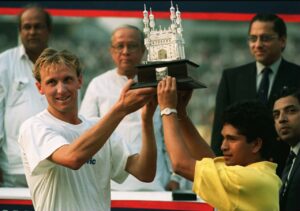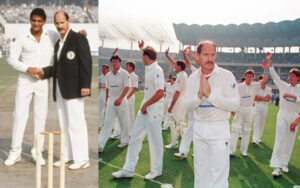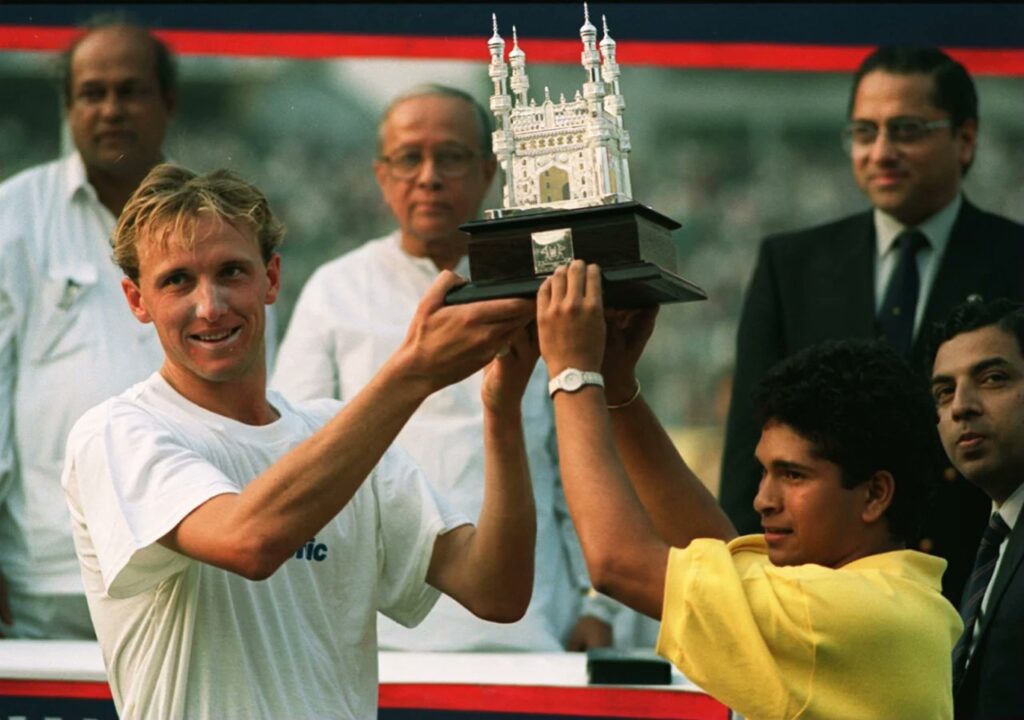
Nelson Mandela’s release from prison in 1990 and the return of the African National Congress (ANC) the year before marked the end of apartheid in South Africa. India was the first country to invite South Africa for an ODI series after masterminding South Africa’s readmission into the ICC.
Though the Indian board had agreed in principle to support the motion for South Africa’s re-entry, that the Indians would move the motion at the ICC was a last-minute decision. Supported by then BCCI president Madhavrao Scindia, Dalmiya moved the proposition for South Africa’s readmission at the ICC annual meeting in June 1991. However, even when the Indian delegation championed the South African cause, thoughts of a friendship series between the two countries were a distant dream. It was Pakistan’s cancellation of a proposed tour of India that created room for the historic tour in November 1991, marking South Africa’s re-entry into the international cricketing fold. The tour was the culmination of a dramatic forty-eight hours of planning in Kolkata. As Geoff Dakin, president of the UCBSA, was to recall:
‘We were in Calcutta on a goodwill visit when Jagmohan Dalmiya proposed this tour. We were, to put it mildly, thrilled. It was a long-cherished dream to tour the country of Mahatma Gandhi. We will never forget the reception we were accorded in Calcutta and at the Eden Gardens. It was special.’
For the Latest Sports News: Click Here

The series is famous for the duel between Allan Donald and Sachin Tendulkar at the Eden Gardens in Calcutta. It was, for me, an “I was there” moment. I was 15 years old and finishing school. Having never missed a game at the Eden Gardens, it was natural I’d make it. In fact, I was there when the South Africans were greeted by thousands in Kolkata with white and black pigeons on their arrival. It was a moment that transcended the boundaries of sport and elevated the series to something very different. No one was really bothered about the result when Mohammad Azharuddin stepped out to toss with Clive Rice, the South African skipper. And even when Andrew Hudson was out, it was considered routine. Here was a team that was making an international comeback and not much was expected of them in the very first game.
South Africa scored a meagre 177-8 in their 50 overs, and it was apparent to all that it was a team which was rusty. In fact, most expected the chase to be a walk in the park for India. I had gone to the Mohun Bagan ground for lunch – my customary stew and bread – and was walking back to Eden when I heard a collective groan. It was enough to rouse my curiosity and told me something unexpected had happened. I quickened the pace, and by the time I was at the gate of the club house, there was a second furore. Something dramatic was going on and I needed to be in my seat.
That was when I first heard the name – Allan Donald. Now, I call him a friend. Back then, he looked terrifyingly quick, unlike anything we had seen in India. Tendulkar won the match for India with a fantastic 62 but Donald made a statement. A new rivalry was born, and we will see one further chapter added to it tonight as Kagiso Rabada and Anrich Nortje take on Rohit Sharma and Virat Kohli in Barbados.
Having thus earned the friendship of South Africa, India pressed for the right to stage the 1996 World Cup at the next ICC meeting. By making it a collaborative venture with Pakistan and Sri Lanka, the united face of Asian cricket was once again put on display. If the 1987 World Cup had been the initial step, the 1996 World Cup was the big leap—instrumental in making the subcontinent a major player at the ICC and in global cricket, a position now cemented in stone.
Also Read: India have exceeded expectations, but can they go the distance?




